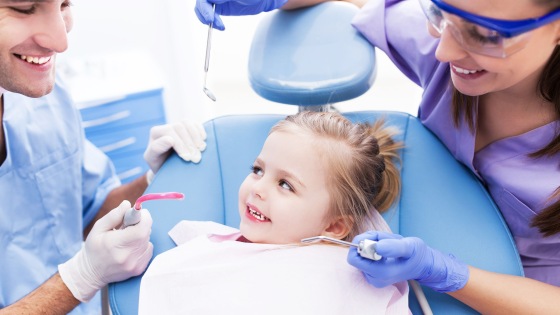How can a small child have such stinky breath?? A study from 2003 showed that 23% of kids have bad breath, so don’t feel like you are alone if you are dealing with this in your child! There are several causes for bad breath in kids. There are also options for preventing and treating it when it occurs.
The first question to ask is, “Is my child doing a adequate job of brushing and flossing?” Poor dental hygiene can lead to bad breath. Bacteria (which produce the foul odor) feed upon food particles that are left in the teeth. Proper brushing and flossing can eliminate the food particles, thereby eliminating the presence of the bacteria. As parents, we know that we need to help our young toddlers to brush their teeth, but even older children may require some help until they develop the dexterity to brush well. Even if they have the dexterity, they may not understand the importance of brushing well, so they may need some coaching to ensure that their dental hygiene is great. And don’t forget to teach your child to brush the tongue as well!
Bad breath can also be a symptom of tooth decay, so be sure to visit your pediatric dentist twice a year to make sure that any tooth decay is diagnosed and treated in a timely manner.
Another cause of bad breath is postnasal drip due to allergies. In this case, treating the allergies should help to alleviate the bad breath symptom.
Any sort of bacterial infection can cause bad breath. This includes sinusitis and throat infections. Normally there will be other symptoms associated with these conditions. Treating the infection should work to eliminate the bad breath.
So, in all of these cases, bacteria is the cause of the bad breath. There have been some studies that have shown that xylitol inhibits the growth of bacteria in the mouth. Many sugarless chewing gums contain xylitol, you can certainly give this a try to combat bad breath.
If you feel as though you have tried everything and the bad breath is still an issue, be sure to consult your pediatric dentist and pediatrician for a more thorough analysis, as it can sometimes indicate a more serious underlying condition. Most often though bad breath is not too difficult to deal with.






